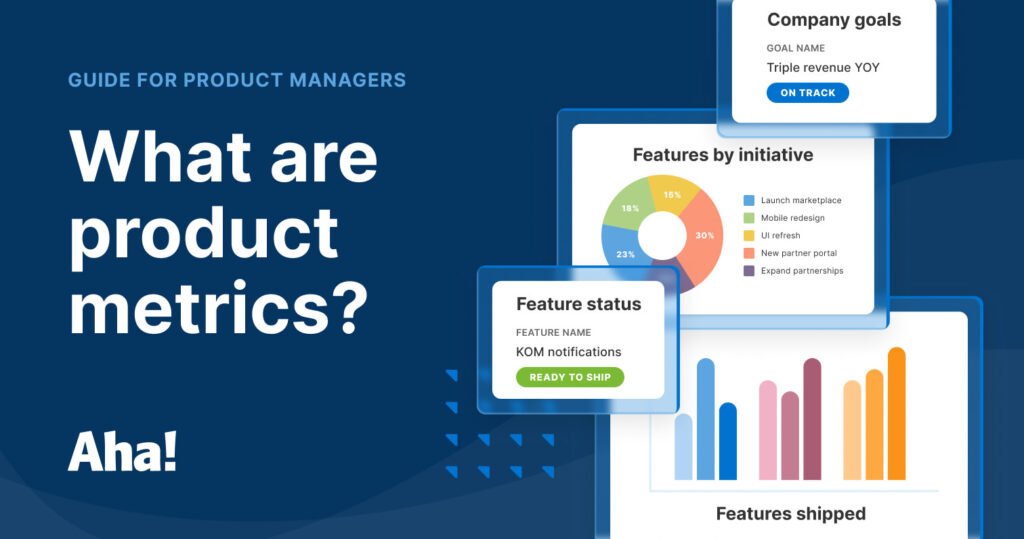
Introduction
Product metrics and Key Performance Indicators (KPIs) are essential tools for product managers to measure the success of their products. By tracking these metrics, product managers can gain valuable insights into user engagement, retention, and conversion rates. In this blog post, we will discuss the key product metrics and KPIs that every product manager should track to ensure the success of their product.
User Engagement
User engagement is a crucial metric that measures how users interact with a product. It provides insights into how users are using the product and whether they find it valuable. There are several key metrics that can be used to measure user engagement:
1. Active Users
The number of active users is a fundamental metric that indicates the popularity of a product. It measures the number of users who interact with the product within a specific time frame, such as daily or monthly. By tracking active users, product managers can assess the growth and adoption of their product.
2. Time Spent on the Product
The amount of time users spend on the product is another important metric that reflects their engagement level. By analyzing the average time spent on the product, product managers can determine if users are finding value and are actively using the product.
3. User Retention
User retention measures the percentage of users who continue to use the product over a specific period of time. It is a critical metric that indicates the product’s ability to retain users. By tracking user retention, product managers can identify areas for improvement and take necessary actions to retain users.
Conversion Rates
Conversion rates are metrics that measure the effectiveness of a product in converting users into customers or achieving desired actions. They provide insights into the product’s ability to drive conversions and generate revenue. Here are some key conversion rate metrics:
1. Conversion Rate
The conversion rate measures the percentage of users who take a desired action, such as making a purchase or signing up for a newsletter. It is a crucial metric that indicates the product’s ability to convert users into customers. By tracking the conversion rate, product managers can optimize the product to improve conversion rates.
2. Funnel Conversion Rates
Funnel conversion rates track the conversion rates at each stage of the user journey, from initial awareness to final conversion. By analyzing funnel conversion rates, product managers can identify bottlenecks and optimize the user experience to improve conversion rates at each stage.
3. Average Revenue per User (ARPU)
The average revenue per user (ARPU) measures the average amount of revenue generated per user. It is a key metric that indicates the product’s monetization potential. By tracking ARPU, product managers can assess the effectiveness of their pricing strategy and identify opportunities to increase revenue.
Retention
Retention is a critical metric that measures the ability of a product to retain its users over time. It provides insights into user satisfaction and the product’s stickiness. Here are some key retention metrics:
1. Churn Rate
The churn rate measures the percentage of users who stop using the product over a specific period of time. It is a crucial metric that indicates the product’s ability to retain users. By tracking the churn rate, product managers can identify the reasons for churn and take necessary actions to reduce it.
2. User Lifetime Value (LTV)
User Lifetime Value (LTV) measures the total value a user generates during their relationship with the product. It is a key metric that indicates the long-term value of a user. By tracking LTV, product managers can assess the effectiveness of their acquisition and retention strategies and make informed decisions to maximize the lifetime value of their users.
3. Retention Cohorts
Retention cohorts analyze the retention rates of different user cohorts over time. By tracking retention cohorts, product managers can identify trends and patterns in user retention and tailor their retention strategies accordingly.
Conclusion
Tracking key product metrics and KPIs is essential for product managers to measure the success of their products. User engagement, conversion rates, and retention are crucial areas to focus on. By monitoring these metrics, product managers can gain valuable insights into user behavior, identify areas for improvement, and make data-driven decisions to optimize their products for success.